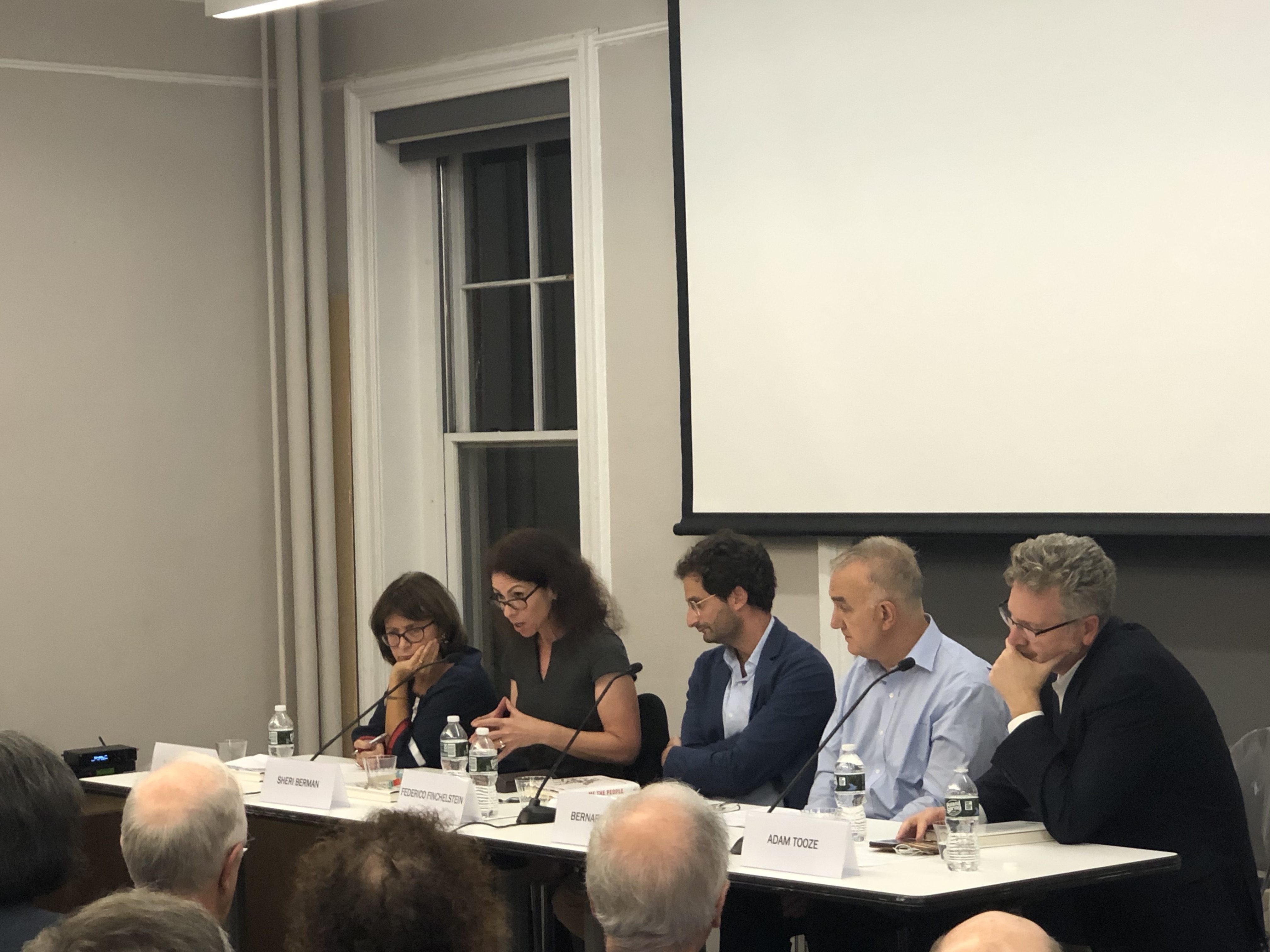The world may be confronting a new form of representative government, one that stretches constitutional democracy to its limits. It’s anti-establishment, and reliant on the mobilization of ordinary people—the good people versus the corrupt elite.
This is how Nadia Urbani, a professor of political science at Columbia, defines populism in her book, “Me the People—How Populism Transforms Democracy.” She regards populism not as the opposite of democracy, but rather as “a mirror of contemporary democracy.” In a panel discussion at Columbia University’s Maison Française, Urbani talked about the issues analyzed in her book.
Populism has been both a media buzzword and a topic of scholarly debate regarding recent world politics. The election of leaders like Viktor Orban in Hungary, Matteo Salvini in Italy and Boris Johnson in the U.K. have led people to question the forces that have brought to power leaders who place the idea of the nation first—sometimes to the detriment of international cooperation.
Populism and democracy are not contradictory to each other, Urbani argues; populism is a democratic phenomenon whose growth reflects social inequality and social stress. Columbia professor Sheri Berman said that populism must be seen as “a reflection of democracy’s own crisis.”
“The anti-establishment characteristic of populism reflects the anger, the fatigue, the resentment of people with the establishment, with the existing elites,” Berman added, “And this anger and resentment is legitimate.”
Following the end of the Cold War in Europe, the modern populist movement took hold in response to the dissolution of many former political parties. Discontent in society fueled the emergence of populist parties, because people were looking for a new scapegoat for their anger and discontent. One of the first of such parties was Lega Nord in Italy, the party led by Matteo Salvini, who was Italy’s Minister of the Interior until recently.
Urbani developed the ideas for her book over two decades starting in the 1990s, using the Italian government as a reference point for today’s version of democracy. Ever since fascism collapsed in the 1970s, populism has thrived in Italy. It’s latest iteration is the five-star movement, which gained support with its demands of sustainable development, public access to things like water and the internet, and a direct democracy style of elections. On the other hand, Urbani noted that in non-democratic countries such as China, Russia and Singapore, populism was “peripheral,” not turning into a widespread movement.
Urbani attributes the present-day existence of populism in democratic countries to two things: the decline of people’s parties (the party gaining the majority of the votes, for instance the conservatives) in multi-party systems across Europe and the extraordinary organizing power of the internet, which is an affordable and revolutionary means of interacting and sharing information for ordinary citizens.
Yet populism is not necessarily a solution to social problems. If populism rules, it can initiate forms of radical authoritarianism that deteriorate divisions of power, independent judicial systems, and basic civil rights. In fact, Urbani said that it is hard not to consider the possible transformation of governments from populist to fascist, as has happened before in the past. Yet the fact that these types of governments continue to have elections, put stock in the voice of the people, and grant airtime to the opposition, leaves Urbani optimistic. She says that populist leaders may still be democrats, if unbearable ones, as long as they still retain democratic elements within their governments.
Urbani suggests that individuals look at critical areas in science, economy, historical, political and cultural ideology from which populism “grows its oxygen:” the end of the Cold War, the refugee crisis, the financial crisis, the Brexit debate, globalization, and the decline of national identity. This is done in order to find democratic solutions to the problems from which populism profits.
“I hope that 70 years of constitutional democracy meant something in the institutions and in the people,” Urbani said.






Be First to Comment